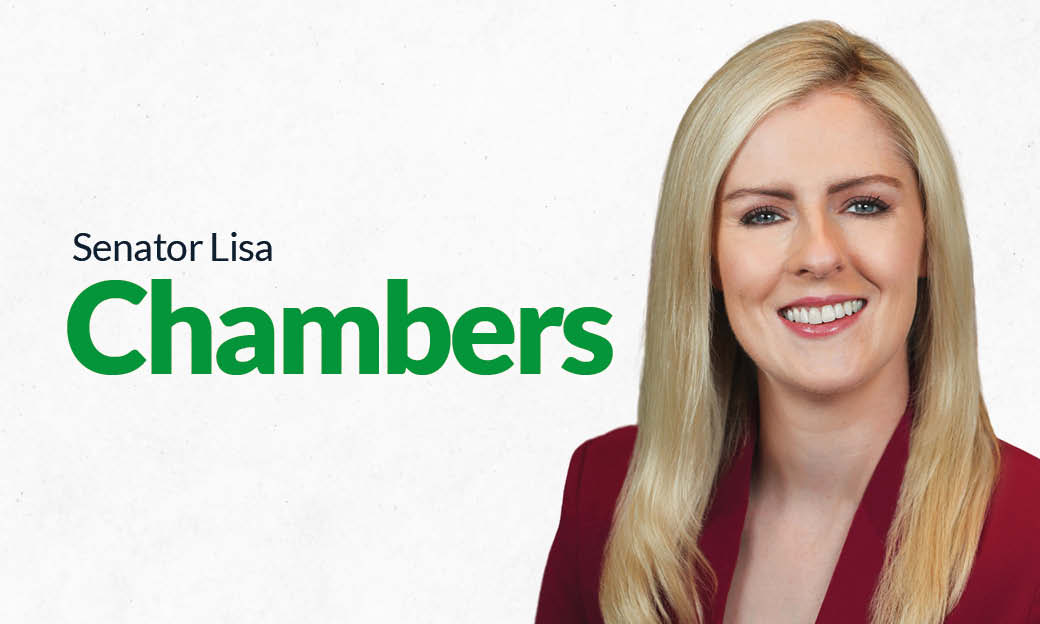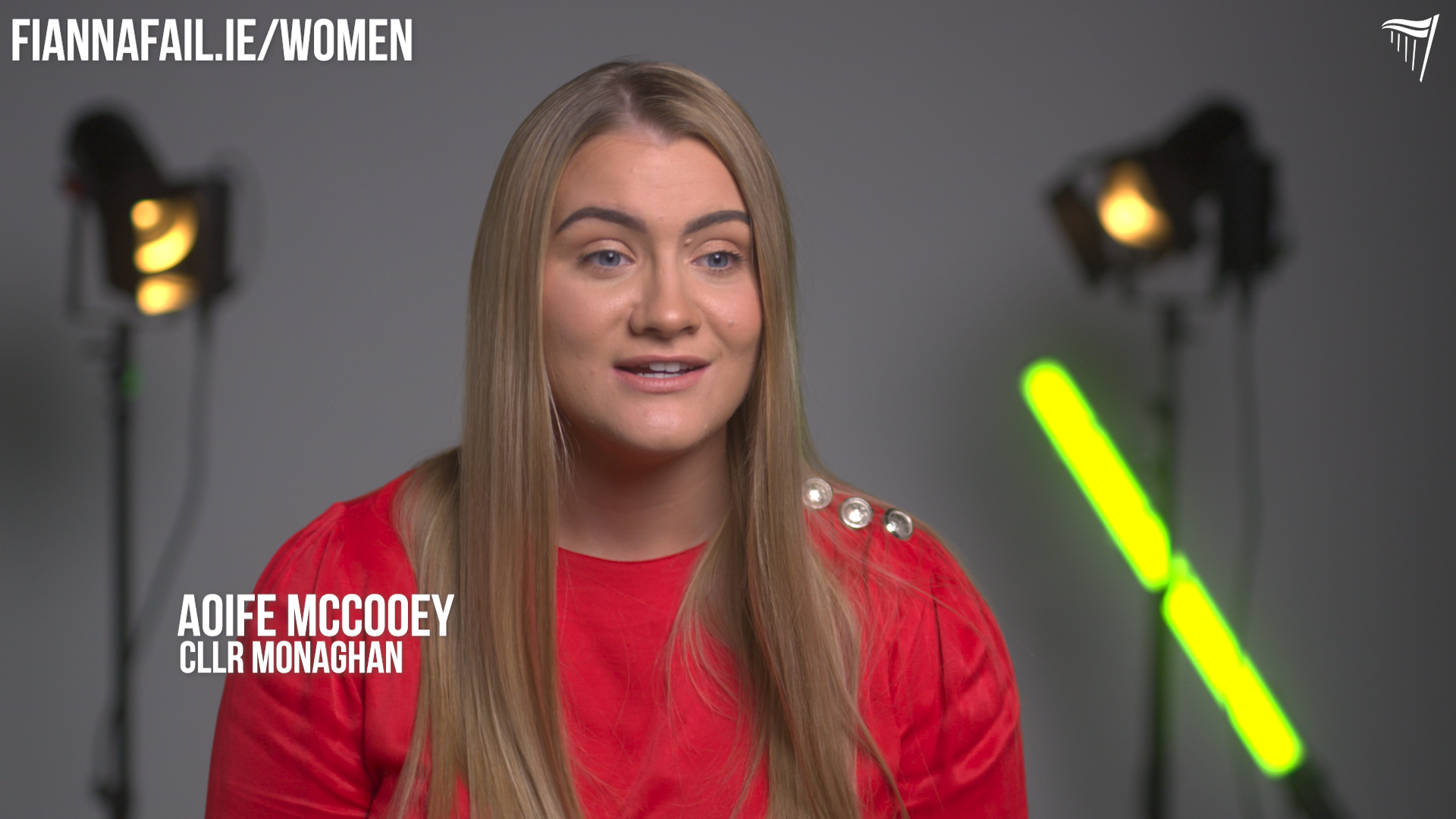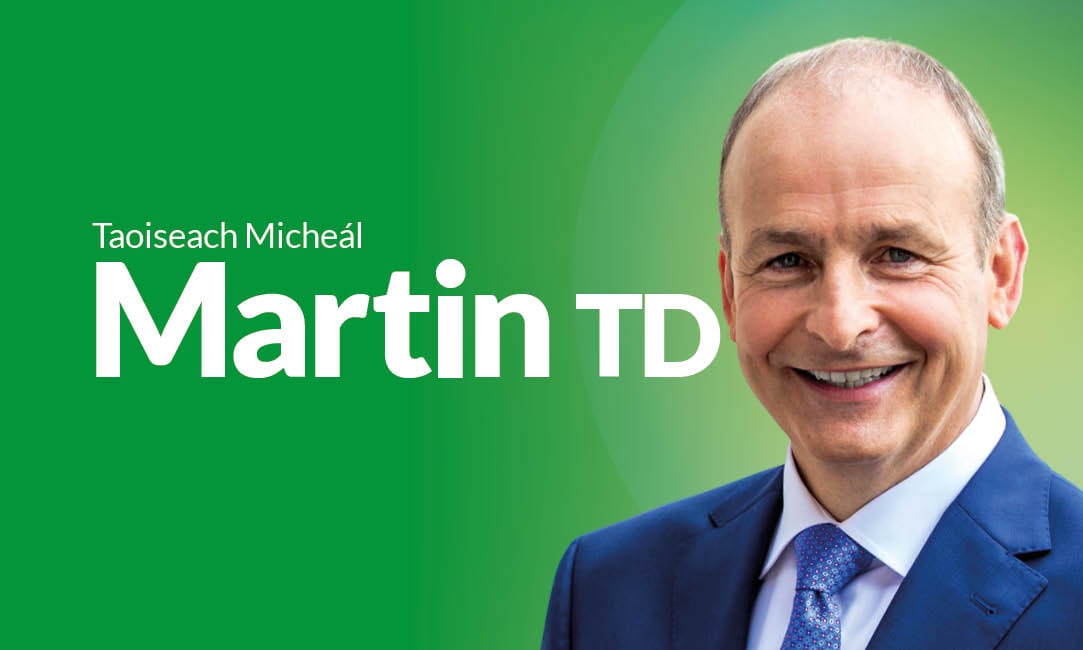Speech by the Taoiseach, Micheál Martin TD at a Fianna Fáil International Women’s Day ‘Break the Bias’ Event
Published on: 09 March 2022
Good evening everyone, and thank you Fiona.
Thank you for your warm introduction and for the important work you are doing as Parliamentary Liaison to the Fianna Fáil Women’s Network.
Thank you indeed to everyone involved in the Network for the work you are doing in promoting women and women’s issues within the Party and especially for organising this evening’s event.
I am particularly pleased to see and catch up with your President, Laura Reid Costello here this evening.
Like everyone else here, I also feel honoured and humbled by your presence, Madam Ambassador Larysa Gerasko, and your colleague in the Ukrainian Embassy, Charge D’Affaires Olena Shaloput.
Because, as we mark International Women’s Day this year, it is the women of Ukraine who deserve to be first in our thoughts.
They are facing brutal imperialist aggression of a type we had all hoped was confined to the history books.
They are facing impossible choices on an hourly basis as they try to protect their families from War and try to hold their lives together.
And they are serving heroically in many roles. I want to particularly honour the female members of the parliament of Ukraine who have remained in Kyiv and are standing resolutely for the defence of Ukrainian democracy and sovereignty.
For us in Ireland this Ukrainian national struggle for survival and independence has a particular poignancy. It comes at a time when we have been commemorating the centenary of our own war of independence and our establishment of one of the longest continuous democracies in the world.
In this, we must never forget the central role which women played in our successful revolution. In fact, it is almost impossible to imagine how it could have succeeded without the central role which women played.
It should be a source of immense pride for us that the Proclamation of 1916 may well be the first revolutionary declaration of independence to demand full rights for women. The extension of the still unequal franchise to women in 1918 was an essential part of the radicalism of that election and the sweeping victory won for separatist republicanism.
And so it continued through the War of Independence. At local and national levels woman were irreplaceable parts of the revolutionary forces, and achieved a growing presence in politics.
It is one of the great shames of our independence that this early progress for equality was not only not built on, it was rapidly lost. January 1922 was the last time for 57 years that a woman would sit in an Irish government.
In remembering the women who helped us to achieve our independence we naturally think most about the person who chaired the first meeting of the Fianna Fáil party, Constance Markiewicz.
She was a passionate leader, determined to overcome any obstacles put in her way as she worked to serve her country. Her role as a senior officer in the Rising, the first woman elected to parliament and the first woman to serve as a government minister are only part of her legacy.
Just as they tried to dismiss all republican women at that time, others tried to present Markievicz as hysterical or unsuited to politics – but the reality was that our country would have been served well if it had had more political leaders with her passion, her social conscience and her wider world-view.
And it was precisely because she believed in achieving progress for the Irish people that she was one of the leaders who founded our party.
She felt it was her duty, and the duty of all republicans, to find new ways forward and Fianna Fáil was, to her, the way to do this.
Her early death was a great loss for Fianna Fáil and for Ireland. When you look at photographs of her funeral you can see on the faces of those attending how deeply affected they were by the loss of their friend and colleague.
I am very proud of the role which the women of Fianna Fáil have played in remembering her and renewing her spirit.
I think there is something very wrong when others try to appropriate this great leader for their own political agendas. I think it is extraordinary how others who claim her as an icon choose to ignore the political views and choices of Markievicz herself.
Healthy debate needs a respect for diversity of views. It can never be based on the intolerance which comes with saying that there is only one way to achieve widely held objectives.
Strong, democratic societies which thrive over time and succeed in overcoming deep barriers need people who reject simplistic ideological divisions.
Perhaps the single greatest strength of Irish democracy, a strength which saw us rise up from being consistently one of the poorest countries in Europe is that we avoided sharp left versus right politics. We maintained the ability to debate, to set out different approaches to tackling problems and to steadily evolve.
In terms of the great challenge of achieving true equality of opportunity for all there has been undoubted progress, but nowhere near enough.
In terms of political representation, there is much more to be done.
When I became Taoiseach I was very proud to make appointments which meant that for the first time in history over 40% of the Upper House of the Oireachtas is composed of women. It was a target first set decades before, and I’m proud that we were responsible for achieving it.
However, we need to now focus properly on the local elections which will be held in two years’ time.
Local government is a hugely important part of the administration of our Republic and I am very pleased to see so many strong, impressive, female Fianna Fáil councillors across the country and here this evening.
It also remains the dominant route to national politics in our country and it will remain so because the Irish people generally like to get to know the people they send to parliament.
It is still far too difficult for women to feel confident enough to go before selection conventions or to succeed at those conventions.
I want to make it very clear to everyone in our party that the 2024 local elections must mark a moment where we make a major step forward in the selection and support of woman candidates.
The Árd Comháirle and party headquarters are committed to making sure that this happens and details of this will be announced before the process of candidate selection begins.
In government we are also committed to ensuring that we have greater gender equity in state boards and at every level of public services. And critically, we are determined to ensure that a diverse range of skills and opinions are represented in this.
Unfortunately, the gender pay gap remains significant in Ireland and around the world, and it is indicative of the work still to be done to ensure that women have equal access to economic empowerment.
The effects of the gender pay gap are lifelong, resulting in women experiencing poverty at higher levels later in life. According to the latest figures published by Eurostat, in 2018 the gender pay gap in Ireland was 11.3 per cent while the gender pay gap across the EU overall was 14.1 per cent.
This Government is serious about further reducing the gender pay gap.
The National Strategy for Women and Girls has specific commitments on the issue, while the Programme for Government promises to legislate to require publication of the gender pay gap in large companies.
The Gender Pay Gap Information Act 2021 introduced a legislative basis for gender pay gap reporting in Ireland and reporting by organisations with over 250 employees will begin this year.
Regulations to give effect to this legislation are in preparation and will be published in the coming weeks along with guidance for employers.
Reporting requirements will then be rolled out over the next few years to organisations with over 150 employees and then organisations with over 50 employees, eventually encompassing around two-thirds of employees in the State.
Gender pay gap reporting will help employers to identify the drivers behind their individual gender pay gaps and they will be required, as part of the reporting process, to explain their gender pay gap and to propose measures and steps to be taken to address this.
It will also provide transparency for employees on which companies are doing the most to address their gender pay gap.
Another area where Irish women have been let down in the past is the area of Women’s Health. Women have specific physical, mental and social health needs and over too long a period, these have not been sufficiently recognised and invested in.
This Government is committed to changing that.
Today, our colleague and Minister for Health Stephen Donnelly, joined by all his female colleagues in Government, launched a new Women’s Health Action Plan for the coming two years.
This Plan will see a massive increase in investment in Women’s Health. For context, in 2020 we spent €4 million in new funding for targeted women’s healthcare measures; in 2022 we will spend €31 million.
We will embed the initiatives we introduced over the last year, and we will significantly grow the available supports, services and expertise in contraception, breastfeeding supports, menopause care, women’s mental health and gynaecology.
I also want to particularly acknowledge the wonderful work which Minister Mary Butler is doing in the area of mental health and elderly care.
She is a real champion for action, making a real difference and I think her legacy in this role will be an unmatched record of commitment to reforming and expanding mental health services and elder care services in our country.
The reality of gender-based violence remains one of the greatest failings of most societies and it is one which we must do more about in our country.
Earlier this year, we had a moment of unprecedented solidarity on this issue following the horrific murder of Aishling Murphy.
As a people, we came together and were clear in our response: Ireland wants and needs a zero-tolerance approach to violence against women.
The means to achieve this, a new whole-of-Government strategy to combat domestic, sexual, gender-based violence is in the final stages of preparation.
It has been developed in close partnership with those involved in protecting and supporting women and is currently in the consultation phase.
t will come before Government for agreement next month.
Alongside this new strategy, we are also driving forward plans to support victims and vulnerable witnesses in sexual violence cases, and a number of important legislative advancements in this area have also taken place.
Just one example is the enactment of Coco’s Law, enacted the Government last year, which outlawed image based sexual abuse, broadened the existing offence of harassment and increased the maximum penalty for harassment to 10 years.
I’d like to pay tribute here to our colleague Senator Lisa Chambers for her leadership on the issue of Stalking and the very constructive work she is doing with the Minister to ensure that Stalking is properly recognised and punished in Irish law.
As well as legal deterrents against bad behaviour, we need to do more to encourage and enable good behaviour. And for that of course, education is key.
It needs to start at primary school and continue throughout education and into the workplace. It needs to include instruction and understanding on gender equality and respect, healthy relationships and the meaning of consent.
Preventing abusive behaviour requires that we recognise and call out bad attitudes held by many men. We need to be clear at all times, in all settings and with all men, that misogyny is simply unacceptable.
In terms of education, and in a more positive context, another issue that the Government is very focussed on is ensuring more female participation in STEM subjects –
I know that this is an issue Dr Ní Shuileabhain is passionate about, and has done a lot of work on, and I hope we get the chance to discuss it in our exchange.
Unfortunately, childcare remains an issue which primarily impacts on women and their ability to participate in not just the labour force but in all aspects of our society. I am determined that we will significantly improve the range and quality of childcare available in Ireland.
This year’s budget made significant provision for those working in childcare to improve pay and conditions and to develop better and more sustainable career pathways.
Over a century ago the progress of our country and the progress of Irish women were understood as inseparable.
Our revolution and our very existence as an independent, democratic and republican state could not have been achieved without the central role of women in supporting and serving the cause of Ireland.
Unfortunately the social, cultural and political reality of what followed represented many lost decades for the cause of Irish women.
As we mark International Women’s Day this year, let us remember the solidarity which we owe to others who are today struggling to achieve and defend their right to live in free democracies – and in terms of our own country, let us remember the spirit of Constance Markievicz and the great generation of women she belonged to.
Let us commit ourselves to the idea that this will be the generation where we make a final push towards the fully inclusive and diverse democracy which they struggled to create.


